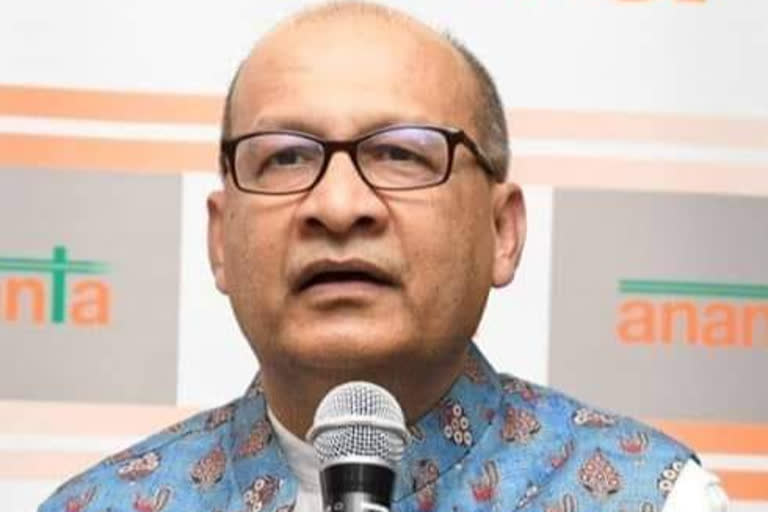New Delhi: The Himalayan nation is reeling under huge political crisis for months now after Oli, in a surprise move, dissolved the House of Representatives, amidst a brawl for power with Prachanda.
However, in light of the hinge in the political scenario of Nepal and perhaps out of concern, Chairperson of the Nepal Communist Party’s splinter faction Pushp Kamal Dahal Prachanda has sought support from the international community, including India and China, for its ongoing struggle against Oli’s undemocratic decision to dissolve the parliament.
India and Nepal’s special relationship is undergoing an implosion and the bilateral ties got worse after the territorial dispute over the Limpiyadhura-Lipulekh and Kalapani regions. But efforts are on by both the countries to calm the ties and strengthened the bond.
Now it remains to be seen whether New Delhi would stand with Kathmandu at the time when the nation is a plunge into political catastrophe.
Experts opine that Nepal is a sovereign country and it is their right to seek help from anybody. However, India is very clear that this is a purely internal matter.
Speaking to ETV Bharat, Former top Indian envoy Vishnu Prakash, said, “We as well-wishers and given our civilisational linkages, hope that any differences can be resolved peacefully through dialogue within the framework of the constitution of Nepal. So that is India’s stance over the matter. There is no way on the Earth for India to engage in the internal matter of the Himalayan nation”.
“Nepalese leaders are very proud people and they are true nationalists. They may be pro or anti-China but they are certainly pro-Nepal, which will be there for any political leader”, he added.
Since KP Sharma Oli’s move to dissolve the 275-member house sparked protests and rallies from a large section of the rival faction of ruling NCP, a mass rally led Pushpa Kamal Dahal and Madhav Kumar Nepal will be organised on Wednesday.
According to reports, Prachanda during a media interaction in Kathmandu had said that the Supreme Court would not endorse Prime Minster Oli’s unconstitutional and undemocratic move to dissolve the House of Representatives. His comment came ahead of the massive rally to be held in Kathmandu today.
Ambassador Prakash further said that the situation in Nepal indicates that it is nothing but ‘jostling for power’. “And how to pan out would depend on the people of Nepal. Relatively the power balance is small but one thing is clear that under no circumstances, India is going to get involved in that, for the simple reason that it is a ‘no-win’ situation for India. Whatever India would do, it will be at the receiving end “, he stated. India would get scalded both ways.
So it is up to Nepal as sooner or later in the past, the country has resolved problems. The roots of Democracy are getting stronger and it is a process. It is a young democracy and they will sort it out”, Prakash explained.
Pertinently, Nepal has conveyed to the International community that Oli’s move has resulted in the demise of the democracy and that it seeks support from the global community including India, China or EU and the US to protect its democracy and country’s integrity.
Tens of thousands rally in support of Nepal’s embattled PM
Earlier, experts told ETV Bharat that amidst the political crisis, stakes of India and China is very high in Nepal. The Chinese have invested a lot of money on Nepal and plans to do more. India, on the other hand, has a lot of security and economic concerns in Nepal. Both the countries will take deep interest and much would depend upon what kind of political regime comes up in Nepal.
Some reports suggest that Oli is known for his pro-China leanings but foreign policy experts say that he has now distanced himself from China and is more inclined towards New Delhi.
"These are all unpredictable matters and people can change depending upon what suits them politically”, an expert told ETV Bharat during an interview.
Moreover, Prachanda on Tuesday had clearly said that there is no need to drag foreign elements in the internal matter of Nepal; as such things are largely determined by internal situation rather than the external environment.
Prime Minister Oli had decided to dissolve the Parliament on December 20 last year, calling for fresh elections for April and May this year. This step was approved by President Bidya Devi Bhandari.
Meanwhile, the decision of dissolution of Parliament is being challenged in court with over a dozen cases filed in Nepal's Supreme Court whose verdicts are expected by the end of this month.
This move by Oli has also dragged the Himalayan nation towards political instability and it can be viewed that the future of Nepal’s democracy is at high stake.
India had described Oli’s sudden move to dissolve the Parliament and call for fresh elections as an ‘internal matter’ that is for the country to decide as per its democratic process. Whereas on the other hand, China had sent a high-level delegation to Nepal to prevent the split within the ruling NCP.
Elected in 2017 after a landslide victory, Oli became the first Prime Minister of the Federal Republic of Nepal after the communist alliance of the Communist Party of Nepal (Unified Marxist-Leninist) CPN-UML and CPN (Maoist Center) secured nearly two-third majorities in the lower house. The alliance which turned into a new party under name of the NCP headed for a split within 2 years of unity. The party has practically split into two after Oli decided to dissolve the lower house.
Also Read: Street protests continue against Nepal’s Prime Minister



